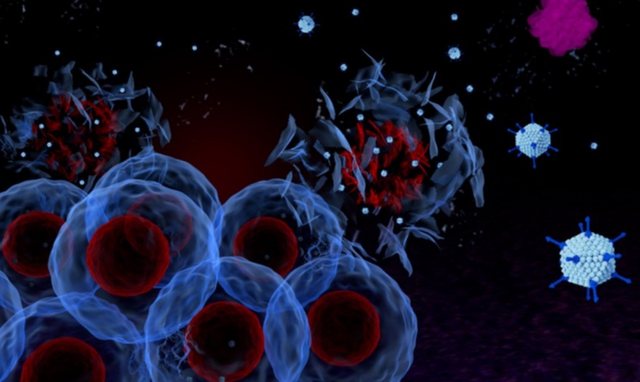
If all viruses were to disappear, the world would be very different, but not necessarily better. But what exactly would happen?
By Rachel Nuwer
Viruses seem to exist only to destroy society, and to cause suffering to humanity. They have claimed millions of lives over the millennia, often destroying large parts of the global population, from the 1918 Spanish Influenza pandemic that killed 50-100 million people to 200 million people estimated to have died of smallpox alone. in the twentieth century.
The current Covid-19 pandemic is just one of a series of ongoing and endless viral attacks. If there was a chance to find a cure that would eradicate all viruses in circulation, most people would want this moment to be exactly today.
But this would be a deadly mistake, in fact more deadly than any virus has ever been. "If all the viruses were to disappear suddenly, the world would be a wonderful place for about a day and a half, then we would all die," said Tony Goldberg, an epidemiologist at the University of Wisconsin-Madison.
This is because the vast majority of viruses are not deadly to humans, and most even play a vital role in the existence of ecosystems. Others maintain the health of individual organisms, from fungi and plants, to insects and humans. "We live in perfect balance, and viruses are part of that balance," said Susana Lopez Shareton, a virologist at the National Autonomous University of Mexico.
Most people are not aware of the role that viruses play in supporting most of life on Earth, because we tend to focus only on viruses that cause problems for humanity. Almost all virologists study only pathogenic viruses. And only recently, some researchers have begun analyzing the viruses that keep us and our planet alive, rather than killing us.
What scientists know for sure is that without viruses, life and the planet as we know it today would cease to exist. Then even if we wanted it wholeheartedly, eradicating any virus on Earth would be impossible.
But imagining what the world would be like without viruses, we can better understand not only how vital they are to our survival, but also how much we still need to learn about them. First, researchers do not know exactly how many viruses exist on Earth.
Thousands have been officially classified, but in fact there may be millions. "We've only discovered a small part, because people haven't asked for it much," said Merilin Rosink, an ecologist at Pennsylvania State University. Scientists do not know how many percent of viruses in total are problematic for humans.
"Numerically, it would be close to zero," said Curtis Satell, an environmental virologist at the University of British Columbia. "Almost all viruses are not pathogenic to the things that are most expensive to us," he added. What we do know is that phages, or viruses that infect bacteria, are very important.
Their name comes from the Greek term "fagina", which means "to swallow". "They are the main predators in the bacterial world. "Without them, we would be in big trouble."
Phages are the main regulator of the bacterial population in the ocean, and are likely in any other ecosystem on the planet.
If the viruses suddenly disappeared, some bacterial populations would thrive; others could stop growing up. And that would be very problematic, especially in the oceans, where more than 90 percent of all living material is microbial in nature.
These microbes produce about half of the oxygen on the planet, a process that is made possible by viruses. The latter kill every day about 20 percent of all ocean microbes, and about 50 percent of all ocean bacteria. By eradicating microbes, viruses ensure that the oxygen-producing plankton has enough nutrients to carry out photosynthesis properly, supporting most of life on Earth.
"If we don't have death, then we won't have life, because life is completely dependent on the recycling of materials. "Viruses are so important in terms of recycling." Researchers studying insect killers have found that viruses are vital to controlling the species population.
If a certain species is added more than it should, a virus will appear between them and eradicate them, says Rosink. "Viruses are a very natural part of ecosystems," she said. Even Satellite points out that when populations become too large, viruses tend to multiply faster and exterminate that population, creating space for everything else to live.
And if the viruses suddenly disappear, the competing species are likely to thrive to the detriment of others. "We would quickly lose a lot of biodiversity on the planet," adds Satellite. Meanwhile, some organisms depend on viruses for survival, or to give them an advantage in a competitive world.
For example, scientists suspect that viruses play important roles in helping cows and other ruminants to convert cellulose obtained through grass into sugars that can be metabolized, and that eventually turn into body mass and milk.
Researchers also believe that viruses are very important in keeping healthy microbiomes in the bodies of humans and other animals. Rosink and her colleagues have uncovered concrete evidence for this.
In one study, they examined several fungi that colonize a specific grass in Jelloustoun National Park in the US. They found that a virus that infects fungi and that allows the drug to become tolerant to the geo-thermal temperatures of the soil.
"When the virus, the fungus and the plants are together, then the plants can grow even in very high temperatures. "Fungi alone can't do that." Infection with certain benign viruses can help remove certain pathogens in humans.
The GB C virus, a common virus born of human blood, which is a non-distant 'relative' pathogen of West Nile virus and Dengo Fever, has been linked to delayed AIDS progression in positive people. with HIV.
The scientists also found that the C GB virus appears to make people infected with Ebola more resistant to the disease, and they are less likely to lose their lives. Also, herpes makes rats less susceptible to certain bacterial infections, including Bubonic Mortar.
Meanwhile, without viruses, we and many other species may be more prone to other diseases. Viruses are also some of the most promising therapeutic agents for treating certain diseases. Facial therapy, the subject of a large study in the Soviet Union since the 1920s, uses viruses to fight bacterial infections.
This is an area that is expanding rapidly, not only because of increased antibiotic resistance, but also because of the ability to better fight specific bacterial species, rather than purifying our entire bacterial population indiscriminately, such as make antibiotics.
"Many people have escaped death by using viruses, where antibiotics have failed," says Satellite. Oncolytic viruses, that is, those that selectively infect cancer cells, are increasingly being studied as a less toxic and more effective treatment for tumors.
Scientists have just begun to discover how viruses help keep life on Earth. The more we learn about all viruses, and not just about pathogens, the more prepared we will be to develop cures against other viruses that could cause the next pandemic in the future.
"BBC Future" - Bota.al





